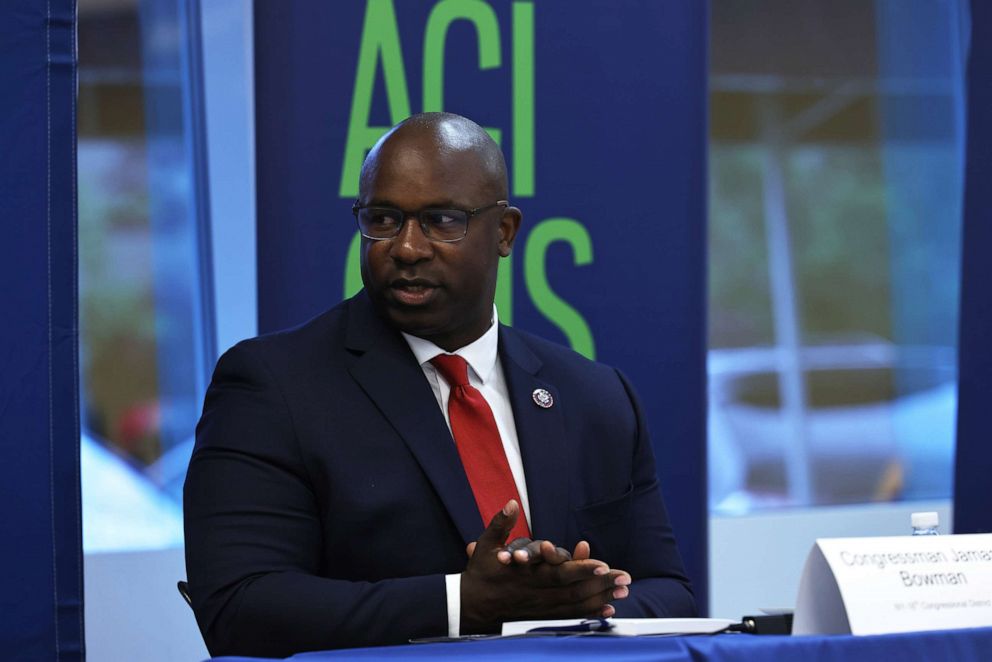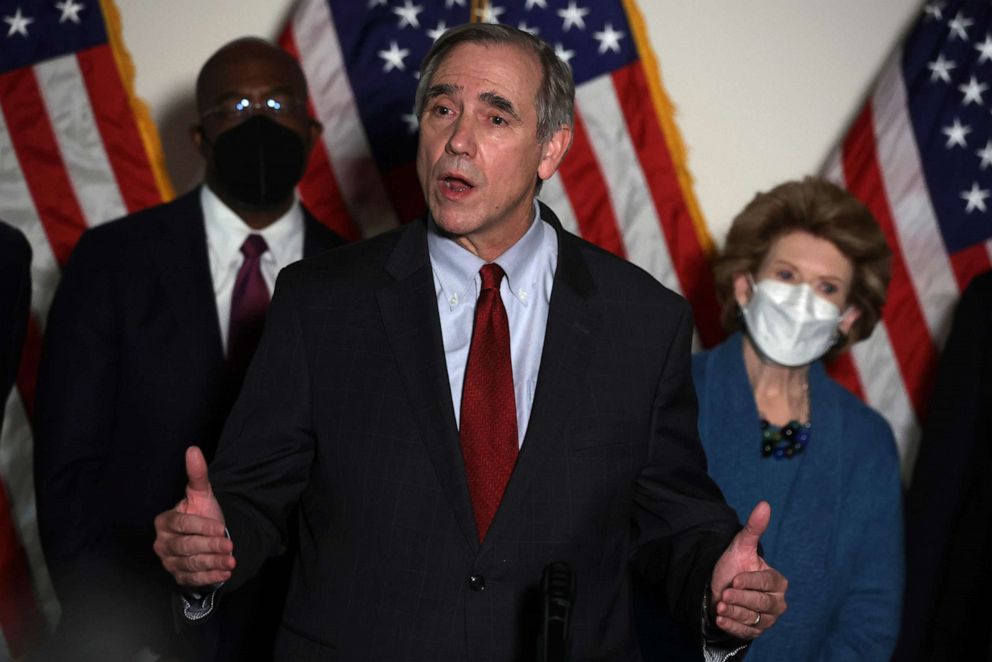Congressional bill seeks to end legacy admissions at colleges
The "Fair College Admissions for Students Act" was introduced Wednesday.
A bill introduced in Congress Wednesday by Democratic lawmakers seeks to end legacy admissions at many U.S. colleges and universities.
The so-called Fair College Admissions for Students Act would amend the Higher Education Act of 1965 to bar institutions of higher education that participate in federal student aid programs from giving admissions preference to applicants with legacy or donor status, a common practice at elite institutions.
The bill was introduced by Rep. Jamaal Bowman (D-NY) and Sen. Jeff Merkley (D-Oregon) in an attempt to address what they said is an unfair and inequitable admissions process that disproportionately benefits wealthy, white and connected students.

"All students deserve an equitable opportunity to gain admission to institutions of higher education, but students whose parents didn’t attend or donate to a university are often overlooked in the admissions process due to the historically classist and racist legacy and donor admissions practices at many schools across the country," Bowman said in a statement.
Merkley said the bill would seek to level the playing field for minority and first-generation students especially.
"Children of donors and alumni may be excellent students and well-qualified, but the last people who need extra help in the complicated and competitive college admissions process are those who start with the advantages of family education and money," he said in a statement.

The bill would allow the education secretary to waive the legacy preference ban for institutions like historically Black colleges and universities, tribal colleges and minority-serving institutions, which admit high levels of underrepresented students already.
Legacy preferences are common among selective colleges; according to the progressive think tank The Century Foundation, three-quarters of the nation’s top 100 national universities in U.S. News & World Report employ them, and nearly all the 100 liberal arts colleges do.
The legacy preference is worth an extra 160 points for children of alumni, researchers from Princeton University found.
Supporters of legacy preferences argue that legacies can help boost an institution's ability to award financial assistance to low-income students.
Several institutions, including Johns Hopkins University and Amherst College, have ended their practice of legacy admissions in recent years.
Last year, Colorado became the first state to enact a law banning legacy admissions at public colleges and universities. In the wake of the "Varsity Blues" scandal, California didn't ban legacy admissions but did require institutions whose students receive state financial aid to disclose how many applicants are accepted through the practice.
The Fair College Admissions for Students Act is introduced as the Supreme Court is poised to hear challenges to affirmative action, which also could have implications for many colleges and universities' admissions policies.




